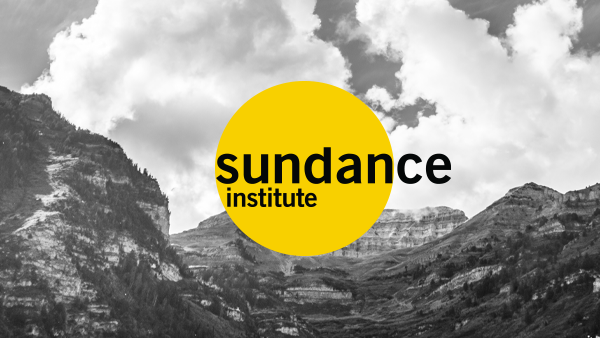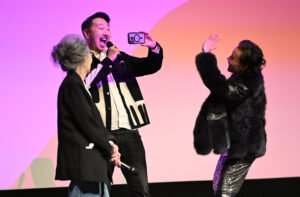Dear Artists,
Thank you for sharing last week’s letter expressing your thoughts on the inclusion of Jihad Rehab in this year’s Festival, and recommendations for moving forward. We are grateful for the continued engagement, with all that it takes, in raising issues that we care deeply about.
We are fiercely committed to a curatorial process that is independent, rigorous, and upholds the mission and values of the Sundance Institute. We know that curation is an art, not a science, and we recognize that with curatorial power comes responsibility — in particular, the responsibility to our community to listen and ensure that they’re heard and represented.
Many of the recent conversations we have been engaged in around these matters have been profound reminders of the impact of our work. Our year-round endeavor to support a truly diverse array of artists across all of the Institute programs is at the front of our minds as we constantly evaluate our processes. To that end, as we continue to prioritize this important work, we want to share the following commitments:
- We commit to deeper dialogues and the actions they inform around support for Muslim artists, and, separately, documentary ethics and best practices. Over the course of the next few months, we will host a number of intimate work sessions with our artist community, the industry, and the field. If you are interested in participating in these conversations, please sign up here for updates.
- Later this month, we will hold a conversation with other festival leaders to discuss the specific responsibilities of Festival curators in relation to the questions that should be asked of film teams before selecting and platforming their work, and the implications of those answers. We will also review our submission processes as we further address issues such as risk assessment, duty of care and informed consent. Additionally, this spring, we will hold a session for Sundance-supported artists addressing the duty of care for vulnerable subjects in documentary storytelling, with practical expertise and advice. We will continue to offer such professional development opportunities for artists and employees moving forward.
- We will continue, and deepen, our work to elevate Muslim and MENASA artists. We already have a number of fellowships and granting funds specifically related to under-represented and marginalized artists, and we are seeking funding to support a new initiative specifically for MENASA artists. Previously, we organized a Screenwriters Lab for MENA filmmakers for 11 years in Jordan. Then for five years, up until COVID-19, through our Theater Program, we supported MENA artists in international and US-based labs — where the Theater labs had a 50/50 representation of MENA artists.
- Through our Safety & Belonging Program, we are committed to equipping our staff, artists and audience community to further the values of equity, safety, and inclusion. In addition to our trainings on racial equity, disability inclusion, and transgender awareness, we are planning an upcoming session specifically around Muslim cultural competency and anti Islamophibia. These trainings enhance our broader cultural competency and are foundational to our work.
- In 2020, Sundance Institute made a commitment to greater candor and transparency with the goal of maintaining a diverse, inclusive, and equitable staff composition, and in support of our work to elevate artists from historically marginalized communities around the world. To help measure and improve upon this work, we provide artists demographic questions to answer, and have committed to sharing this data at the end of each fiscal year. The optional responses do not affect submissions to, or selection for, programs, but contribute to our ongoing work towards racial equity.
- This past Festival we shared details of demographics of our artists in our announcements. The festival featured 163 projects: 152 (93%) of the projects had directors who identified their ethnicity, and of those, 12 projects (7%) had directors who identified as Middle Eastern or of Middle Eastern descent.
- Our Institute curators are a diverse group of individuals. Our year-round staff curatorial teams are made up of 55 individuals, 30 of whom identify as persons of color (54.5%), 25 who identify as white (45.4%).
- The curatorial work is supported by a community of independent contractors who are critical in the process participating as readers, screeners, and evaluators. Thus far this year, 194 independent contractors have participated in the selection process of the projects Sundance Institute supports or showcases in the Festival. Of those, 148 (76%) have responded to a demographic survey to share their ethnic and racial background: 100 (68%) identify as persons of color, and 42 (28%) identify as white, 2 (1%) identify as other and 4 (3%) prefer to not answer.
- The 2022 Festival curatorial team was made up of 78 individuals. Of those 62 (79%) participated in a demographic survey. 31 (50%) of those identify as persons of color, 26 (42%) identify as white, 4 (6%) prefer to not answer, and 1 (1.6%) identify as other.
Additionally, the Institute is committed to elevating underrepresented voices in the media across all programs, including our labs, grants, fellowships, and the Sundance Film Festival. From the end of our 2021 fiscal year, we supported 1092 artists. Of those directors who answered the demographic questions and selected to detail their ethnicity, 72.7% identify as artists of color.
These commitments reflect the Institute’s ongoing work and core values. There will always be more to be done. But we will continue to evolve our work by bringing more resources, planning, research, and field building with partner organizations to address the needs of artists and audiences.
Sundance is a community made up of many communities – with different lived experiences, different opinions, and different perspectives, and that is what makes us stronger – but what we share is a common purpose. We ask our constituents to continue to hold us accountable, as we will hold ourselves accountable, for advancing the changing narrative of independent storytelling — and the larger culture. This work impacts Sundance as well as the field at large, and nourishes the ecosystem.
Sincerely,
Joana Vicente, CEO, Sundance Institute
Tabitha Jackson, Festival Director, Sundance Film Festival







